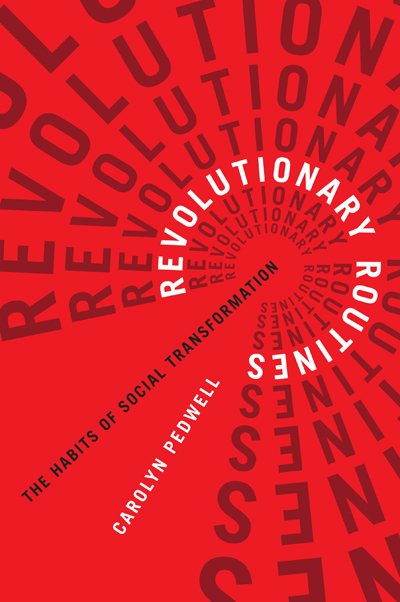A new book by SSPSSR Reader in Cultural Studies, Dr Carolyn Pedwell, critically examines the logics of habit and the nature of social change, power, and progressive politics.
Revolutionary Routines: The Habits of Social Transformation (McGill-Queen’s University Press, 2021) illustrates diverse forms of consciousness and co-operation through which political solidarities might take shape. It argues that seemingly minor everyday habits are the key to meaningful change as opposed to historical turning points, or revolutionary upheaval.
Through its account of influential socio-political processes – such as the resurgence of fascism and white supremacy, the crafting of new technologies of governance, and the operation of digital media and algorithms – this book rethinks not only how change works, but also what counts as change.
Drawing examples from the affective politics of Trumpism and Brexit, nudge theory and behaviour change, social media and the international refugee crisis, and the networked activism of Occupy and Black Lives Matter, Dr Pedwell argues that minor gestures may be as significant as major happenings, revealing the powerful potential in our ability to remake shared habits and imaginatively reinhabit everyday life.
Dr Pedwell is the author of Affective Relations: The Transnational Politics of Empathy (Palgrave, 2014); and Feminism, Culture and Embodied Practice: The Rhetorics of Comparison (Routledge, 2010).
Her research interests include digital media and culture; the politics of emotion and affect; habits and social change; the body and embodied practices; cultural and social theory; and feminist, queer, critical race and decolonial theories. Her Leverhulme Fellowship (2020-2021), ‘Digital Media and the Human: The Social Life of Software, AI and Algorithms’, explores how digital, smart and computational media may be radically transforming ‘the human’.
Dr Pedwell is Director of Cultural Studies and Media at Kent. She convenes and contributes to modules in this field at undergraduate and postgraduate levels. She also supervises PhD students in the areas of social and cultural theory; feminist, queer, critical race and decolonial theory; digital media and culture; habit and habituation; emotion and affect; the body and embodied practices.


